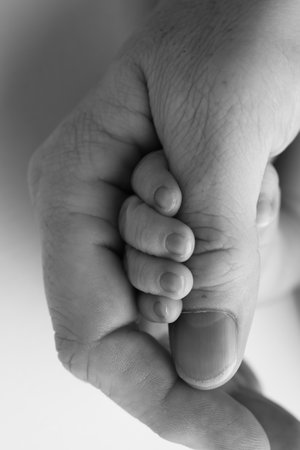Overview of Fathers Rights in UK Adoption and Fostering
The legal landscape surrounding fathers’ rights in adoption and fostering within the United Kingdom has undergone significant evolution over recent decades. Traditionally, the focus in family law often rested on mothers, but there is now a growing recognition of the importance of fathers in children’s lives. This shift reflects both changes in societal attitudes towards parenting and ongoing reforms in family law to ensure the welfare of children remains paramount. Understanding fathers’ rights in these contexts requires familiarity with key definitions, such as parental responsibility, legal guardianship, and the distinction between adoption and fostering.
Key Definitions: Parental Responsibility & Legal Status
| Term | Definition (UK Context) |
|---|---|
| Parental Responsibility | The legal rights, duties, powers, responsibilities and authority a parent has for a child and the child’s property. Biological fathers may not automatically have this unless certain conditions are met (e.g., being married to the mother at birth or being listed on the birth certificate after 1 December 2003). |
| Adoption | A legal process that permanently transfers all parental rights and responsibilities from birth parents to adoptive parents. |
| Fostering | A temporary arrangement where a child is placed with foster carers by local authorities; parental responsibility may be shared or delegated but not fully transferred. |
Evolving Role of Fathers in Family Law
The role of fathers within UK family law has expanded considerably, with greater emphasis placed on their involvement in decision-making regarding adoption and fostering. Courts now assess each case individually, considering not only biological connections but also emotional bonds, stability, and the best interests of the child. This shift recognises that active fatherhood—whether through co-parenting, supporting emotional development, or advocating for contact rights—plays a vital role in children’s psychological wellbeing.
Legal Framework Governing Fathers Rights
Understanding the legal context for fathers’ rights in adoption and fostering within the UK is essential for parents and professionals alike. The principal legislation that frames these rights includes the Children Act 1989, the Adoption and Children Act 2002, and a body of relevant case law. These statutes and precedents collectively shape how fathers are involved in decisions about their children’s futures, balancing the best interests of the child with parental responsibilities and involvement.
The Children Act 1989
The Children Act 1989 is foundational in establishing parental responsibility as a central concept. For fathers, gaining or holding “parental responsibility” determines their right to be consulted and involved in significant decisions affecting their child, including adoption or fostering placements.
| Fathers Status | Parental Responsibility? | How Parental Responsibility is Acquired |
|---|---|---|
| Married to childs mother at birth | Yes | Automatically acquired |
| Unmarried father (pre-1 Dec 2003) | No (unless action taken) | Court order or agreement with mother |
| Unmarried father (post-1 Dec 2003, on birth certificate) | Yes | By being named on birth certificate |
This legal foundation means that not all fathers automatically have the same rights; much depends on marital status and registration at the time of birth.
The Adoption and Children Act 2002
This Act modernised adoption law in England and Wales, placing greater emphasis on the welfare of the child as paramount. It requires courts to ensure that everyone with parental responsibility—including eligible fathers—is notified and given an opportunity to participate in proceedings.
Key Provisions Affecting Fathers:
- Notification: Fathers with parental responsibility must be informed of adoption applications.
- Consent: Their consent is generally needed unless dispensed by court (e.g., if unreasonably withheld).
- Opportunity to Object: Eligible fathers can object to adoption plans and propose alternatives, such as assuming care themselves or suggesting family members.
Relevant Case Law
Court decisions continue to clarify how statutory guidance applies in practice. For example, cases have established that even fathers without parental responsibility may have a right to be heard if it’s in the child’s best interests. The courts weigh factors like involvement in the child’s life, potential for harm, and stability offered by prospective adopters or foster carers.
Summary Table: Key Legislation & Guidance
| Law/Guidance | Main Relevance to Fathers’ Rights |
|---|---|
| Children Act 1989 | Defines parental responsibility; sets out consultation rights in care/adoption decisions. |
| Adoption and Children Act 2002 | Requires notification and consideration of fathers’ views if they have parental responsibility. |
| Case Law Developments | Expands interpretation of “best interests”; clarifies procedural fairness for non-resident or unregistered fathers. |
Together, these laws form a comprehensive structure ensuring fathers—whether married or unmarried—have a clear route to exercise their rights while supporting a nurturing environment for every child’s psychological development and familial connection.
![]()
3. Establishing Parental Responsibility
Understanding how fathers can acquire and demonstrate parental responsibility is central to their rights in both adoption and fostering contexts within the UK legal system. Parental responsibility refers to all the rights, duties, powers, responsibilities, and authority that a parent has by law in relation to their child and the childs property. In practice, this status is pivotal when courts or local authorities are making decisions about adoption or fostering arrangements.
How Fathers Acquire Parental Responsibility
The process for acquiring parental responsibility varies depending on the circumstances of the fathers relationship with the child and the mother. The table below summarises the main routes available:
| Route | Description | Relevant Legislation/Notes |
|---|---|---|
| Marriage to the mother | Fathers married to the child’s mother at birth automatically have parental responsibility. | Children Act 1989 |
| Named on birth certificate (after Dec 2003) | Unmarried fathers named on their child’s birth certificate (after 1 December 2003 in England & Wales) gain automatic parental responsibility. | Births and Deaths Registration Act 1953 (as amended) |
| Parental Responsibility Agreement | An unmarried father can enter into a formal agreement with the mother. | Requires official documentation and registration |
| Court Order | A father can apply to the court for a parental responsibility order. | Court considers welfare and circumstances |
| Step-parent Parental Responsibility Order | A stepfather may also apply if he is married to or in a civil partnership with the child’s mother. | Requires court approval or agreement from all with existing parental responsibility |
The Significance of Parental Responsibility in Adoption and Fostering Decisions
Having parental responsibility means a father has a legal voice in significant decisions affecting his child. This becomes especially important during adoption or fostering proceedings. For instance, before an adoption order can be made, every individual with parental responsibility—including fathers—must either consent or have their views considered by the court. In fostering situations, while day-to-day care is delegated to foster carers, key decisions such as medical treatment, schooling, or religious upbringing still require consultation with those holding parental responsibility.
The Emotional Dimension: A Father’s Connection Through Responsibility
From a psychological development perspective, a fathers active engagement—backed by legal recognition—supports secure attachment and emotional stability in children. When fathers are empowered to participate in planning and decision-making for their children, even amid challenging circumstances like adoption or fostering transitions, it enhances the childs sense of belonging and identity.
Practical Steps for Fathers Seeking Involvement
If you are a father seeking greater involvement in your childs life through adoption or fostering processes, consider these steps:
- Clarify your legal status regarding parental responsibility as early as possible.
- If necessary, seek legal advice on applying for a parental responsibility order.
- Engage positively with social workers and local authorities; express your willingness to participate constructively in your childs future plans.
This proactive approach not only strengthens your legal position but also demonstrates your ongoing commitment as a parent—something that courts and agencies recognise as being in the best interests of the child.
4. Process and Involvement in Adoption
The journey of adoption in the UK presents a complex pathway for fathers, whose rights and involvement are legally protected yet often subject to scrutiny and procedural steps. Understanding these processes is vital for fathers seeking to maintain or establish a relationship with their child amidst adoption proceedings.
Legal Procedures: Steps for Fathers
Fathers who wish to be involved in their childs adoption must navigate several key stages. The process can feel daunting, especially when emotions run high and outcomes are uncertain. The following table outlines the main procedures fathers typically encounter:
| Stage | Description | Key Considerations |
|---|---|---|
| Notification | Fathers must be notified if they have parental responsibility or are registered on the birth certificate. | Unmarried fathers without parental responsibility may not be automatically informed. |
| Consent | The fathers consent is required unless dispensed by the court due to welfare concerns. | Lack of consent can trigger court hearings to assess the childs best interests. |
| Court Involvement | If contested, courts will evaluate the fathers relationship and intentions towards the child. | Factors like ongoing contact and emotional commitment weigh heavily. |
| Final Decision | The courts final decision considers both legal rights and the childs welfare as paramount. | Outcomes depend on evidence of active involvement and capacity to provide care. |
Right to Be Consulted
UK law recognises the importance of a fathers role in his childs life, granting him the right to be consulted before any adoption order is made. This right applies primarily to fathers with parental responsibility—either through marriage to the mother or formal registration on the birth certificate after December 2003 in England and Wales. Even where a father does not hold automatic parental responsibility, local authorities are encouraged to make reasonable efforts to identify and consult him, acknowledging his psychological significance in the childs development.
Court Considerations: Emotional Bonds and Best Interests
The family courts take a holistic view when considering a father’s involvement during adoption. Key factors include:
- The strength of the father-child bond: Regular contact, shared experiences, and evidence of nurturing behaviours are highly valued.
- The father’s willingness to provide care: Courts consider whether the father has demonstrated commitment and practical ability to meet the child’s needs.
- The child’s wishes (where age-appropriate): Older children may express preferences that influence judicial decisions.
- The overall impact on the child’s psychological well-being: Stability, attachment, and continuity are crucial considerations from a developmental perspective.
Cultural Sensitivity in UK Practice
It is also important for fathers to recognise that UK courts strive for cultural sensitivity, considering not only legal rights but also wider family dynamics, ethnicity, and community ties that may affect the child’s sense of identity. This approach reflects a uniquely British understanding of family—one that values emotional connection alongside legal status.
5. Fathers’ Rights in Fostering Decisions
Within the UK, the involvement of fathers in fostering decisions is increasingly recognised as crucial for children’s wellbeing and continuity of family relationships. Fostering assessments, placement decisions, and regular reviews are key stages where fathers have the opportunity to participate actively. The following table outlines how fathers can be involved at each stage:
| Stage | Father’s Involvement | Considerations |
|---|---|---|
| Assessment | Participation in social work interviews and background checks | Ensuring fathers voices are heard and their parenting capacities assessed fairly |
| Placement | Input into decisions about suitable foster carers and contact arrangements | Prioritising stability and continuity for the child, especially regarding father-child bonds |
| Review | Attendance at review meetings and feedback on placement progress | Opportunity to advocate for increased or maintained contact with the child |
The Importance of Father-Child Relationships in Fostering
The legal framework in the UK emphasises the significance of maintaining family ties wherever possible, including those between fathers and their children. Social services are encouraged to facilitate regular contact unless there is clear evidence that it would not be in the child’s best interest. This approach supports children’s emotional security and identity development.
Barriers and Supports for Fathers in Fostering Processes
Despite these positive intentions, fathers may face barriers such as lack of information, assumptions about caregiving roles, or logistical challenges related to work schedules. Supportive practices include flexible meeting times, clear communication from professionals, and involving fathers in all planning stages.
Cultural Sensitivity and Individual Needs
It is important for practitioners to recognise cultural diversity among families in the UK and avoid stereotypes about paternal involvement. By fostering open dialogue and understanding individual circumstances, professionals can better support fathers to remain active participants in their children’s lives during fostering.
6. Barriers and Challenges for Fathers
Despite legal frameworks aiming to protect parental rights, fathers in the UK often encounter a complex web of barriers when seeking involvement in adoption or fostering proceedings. These obstacles can be grouped into societal perceptions, legal complexities, and procedural hurdles, each presenting unique challenges that can impact a fathers ability to assert his rights.
Societal Perceptions and Gender Stereotypes
Traditional views about parenting roles persist in British society, with mothers frequently seen as primary caregivers. Such stereotypes may influence professionals’ attitudes within social services and family courts, sometimes leading to unconscious bias against fathers. This can result in less encouragement for paternal involvement or even assumptions that fathers are less capable or less interested in their children’s welfare.
Common Societal Barriers
| Barrier | Description |
|---|---|
| Assumptions about caregiving | Mothers often perceived as default carers; fathers overlooked. |
| Lack of father-friendly support | Support services may not actively engage or inform fathers. |
| Negative media portrayal | Stereotypes reinforced by media focus on absent or disengaged fathers. |
Legal Complexities in the UK System
The legal process surrounding adoption and fostering is intricate, with varying degrees of recognition for different types of parental status. For example, unmarried fathers who have not acquired parental responsibility may face additional challenges in being consulted during proceedings. Understanding and navigating the Children Act 1989, relevant case law, and local authority protocols can be daunting without specialist advice.
Key Legal Hurdles:
- Lack of automatic parental responsibility for some fathers
- Complexity in challenging placement orders or care plans
- Difficulties accessing legal aid or representation
- Short statutory timescales for responding to notices
Procedural Hurdles within Social Care and Court Systems
The procedural landscape is often overwhelming for fathers. Notification procedures may not always reach non-resident fathers in time, and there can be insufficient communication from local authorities about ongoing processes. Additionally, navigating Family Court procedures requires both persistence and understanding of technical requirements, which can be particularly hard for those unfamiliar with legal language or without robust support networks.
| Procedural Challenge | Impact on Fathers |
|---|---|
| Poor notification systems | Fathers may miss key deadlines for participation. |
| Bureaucratic delays | Critical information may be delayed or lost. |
| Lack of advocacy support | Fathers struggle to present their case effectively. |
| Courtroom intimidation | Anxiety or unfamiliarity leads to disengagement. |
Together, these societal, legal, and procedural factors create an environment where fathers’ voices risk being marginalised. Recognising and addressing these challenges is crucial for ensuring that the rights of all parents are respected within the UK’s adoption and fostering system.
7. Support, Advocacy, and Moving Forward
The journey for fathers navigating adoption and fostering in the UK can be complex and emotionally demanding. Understanding one’s rights is only part of the equation; accessing the right support, advocacy, and guidance plays a vital role in ensuring positive outcomes for both fathers and children. Below is a summary of key resources and recommendations to empower fathers at every stage of this process.
Support Mechanisms for Fathers
| Resource Type | Organisation/Service | Details |
|---|---|---|
| Legal Advice | Citizens Advice Bureau Family Law Solicitors Coram Children’s Legal Centre |
Free or low-cost legal consultations to clarify rights, process, and next steps in adoption or fostering cases. |
| Peer Support Groups | Dads Matter UK Fathers Network Scotland |
Peer-led groups offering emotional support, sharing experiences, and building confidence in parenting roles. |
| Advocacy Services | Family Rights Group Voice4Adoption |
Specialist advice and direct advocacy to ensure fathers’ voices are heard in legal proceedings. |
| Mental Health Support | MIND Samaritans Relate |
Counselling services to address stress, anxiety, or relationship challenges during the process. |
Enhancing Fathers’ Participation: Recommendations
- Early Engagement: Encourage social workers and legal professionals to involve fathers from the very outset of any adoption or fostering consideration.
- Cultural Sensitivity: Recognise diverse family structures and respect cultural backgrounds when assessing father-child relationships.
- Bespoke Training: Provide tailored workshops focusing on fathers’ emotional needs and practical parenting skills to boost confidence and competence.
- Clear Communication: Ensure all information about legal rights and responsibilities is communicated in accessible language, avoiding jargon.
- Ongoing Advocacy: Establish regular check-ins with advocacy organisations to support fathers throughout decision-making processes.
- Feedback Mechanisms: Create formal opportunities for fathers to give feedback on their experiences within the system—informing future policy improvements.
The Road Ahead: Empowering Fathers for Positive Outcomes
The evolving landscape of adoption and fostering in the UK increasingly recognises the essential role that fathers play in children’s lives. By strengthening support networks, enhancing legal advice availability, and fostering meaningful advocacy, we can create an environment where fathers feel valued, understood, and actively included. Ultimately, investing in father-focused support not only benefits individual families but also contributes to more resilient parent-child bonds across society.


